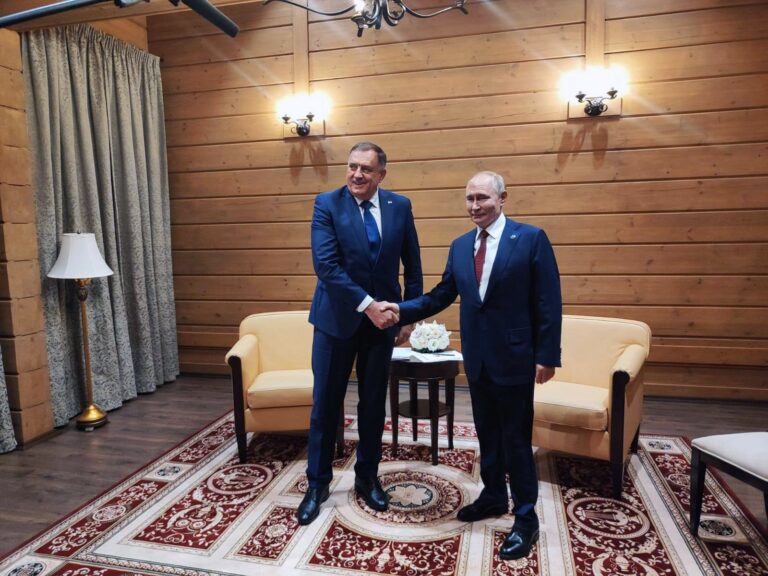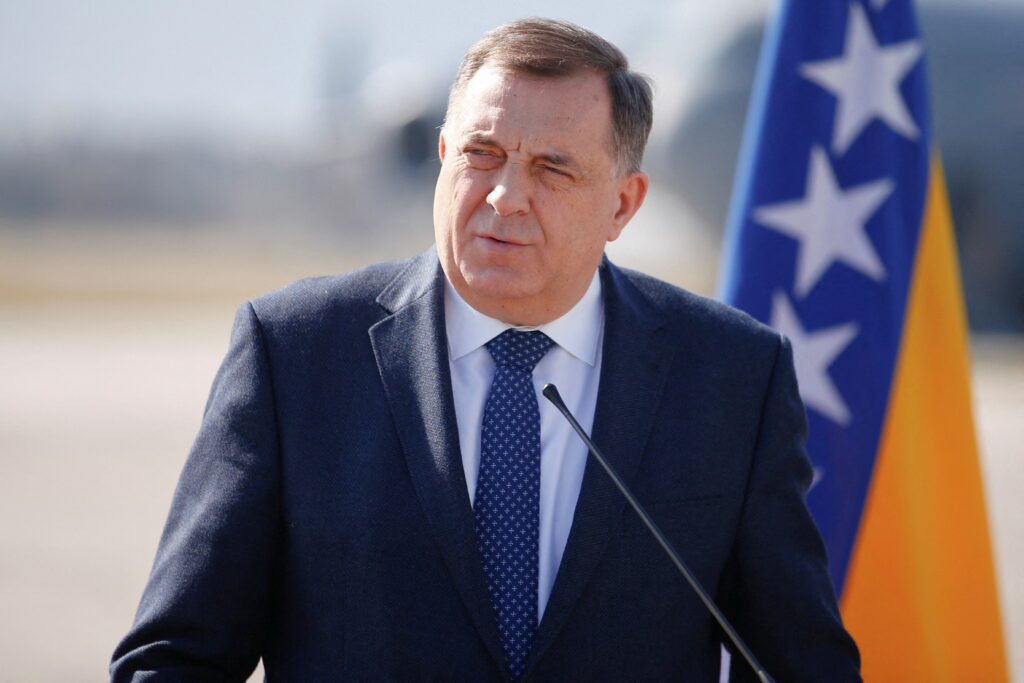The political downfall of Milorad Dodik, the long-serving leader of Republika Srpska (RS), marks a turning point in Bosnia and Herzegovina’s (BiH) post-Dayton political landscape. Once perceived as the most destabilizing figure in the country, Dodik’s conviction—sentenced to one year in prison and a six-year ban from political activity—signals both the limits of nationalist defiance and the enduring strength of BiH’s constitutional order.
Dodik was found guilty of signing decrees that promulgated laws previously annulled by the Office of the High Representative (OHR), led by Christian Schmidt. These laws sought to undermine the authority of the Constitutional Court of Bosnia and Herzegovina and challenge the High Representative’s executive powers. The ruling thus reaffirmed the supremacy of the Dayton constitutional framework and the international community’s supervisory role over the Bosnian entities.
For years, Dodik’s political strategy relied on ethnic polarization, populist rhetoric, and overt alignment with foreign patrons—particularly Russia, Serbia, and, more recently, Hungary. His public defiance of Western institutions and denial of the Srebrenica genocide were central to his nationalist appeal within Republika Srpska. However, his latest legal confrontation revealed the limits of such defiance. Even Serbian President Aleksandar Vučić, who has often balanced between supporting Dodik and maintaining Serbia’s image as a regional stabilizer, could do little to prevent the outcome. The United States and the United Kingdom, both of which had long sanctioned Dodik and his inner circle, welcomed the verdict as a step forward in upholding accountability and reinforcing Bosnia’s fragile rule of law.
In addition to his conviction, Dodik now faces other corruption-related investigations. The Prosecutor’s Office of Bosnia and Herzegovina is currently examining allegations concerning his purchase of a luxury villa in Belgrade’s elite Dedinje neighborhood. This investigation has raised questions about the sources of Dodik’s wealth and potential misuse of public funds, adding to long-standing suspicions of entrenched corruption within his administration. Over the years, Dodik’s rule in Republika Srpska has been characterized by clientelism, economic favoritism, and opaque business dealings that have allowed him to build a loyal political and economic elite. The Dedinje villa case thus represents not only a legal challenge but also a symbolic exposure of the nexus between political power and personal enrichment that has defined his tenure.

Shortly after his sentencing, the parliament of Republika Srpska appointed Dodik’s close ally, Ana Trišić Babić, as interim president, officially acknowledging that Dodik was stepping down from office after a state court injunction barring him from political activity. Trišić Babić, a trusted figure within Dodik’s network, will serve until new presidential elections are held on November 23. Her appointment demonstrates both the immediate political continuity of Dodik’s inner circle and the persistent institutional control that his party, the Alliance of Independent Social Democrats (SNSD), continues to exercise over the RS entity.
Dodik’s political trajectory illustrates the evolution of nationalist politics in the Western Balkans since the 1990s. Initially emerging as a moderate reformist after the war, he gradually transformed into a hardline nationalist whose rhetoric was dominated by secessionist aspirations and historical revisionism. His repeated calls for Republika Srpska’s independence, coupled with denial of the Srebrenica genocide, placed him at the heart of Bosnia’s most divisive politics and made him a consistent obstacle to the country’s EU integration. For nearly two decades, he has capitalized on ethnic tensions and institutional gridlock to consolidate personal authority, skillfully exploiting international hesitation and the structural weaknesses of the Dayton system.
From a policy perspective, Dodik’s removal represents both a potential stabilizing moment and a test of institutional resilience for Bosnia and Herzegovina. On one hand, it signals the ability of state mechanisms—backed by consistent international pressure—to hold even the most powerful actors accountable. On the other, it underscores the fragility of Bosnia’s political balance, where entrenched patronage networks and ethnic party monopolies continue to undermine meaningful governance reforms. Without structural changes to the constitutional and electoral frameworks, Dodik’s departure alone will not resolve the broader dysfunctionality of the Bosnian state.
Despite his conviction and political ban, Dodik’s influence may not end with his formal exit from office. While it is unlikely that he will ever return as an active politician, the depth of his political roots in Republika Srpska raises the possibility that he could continue to exert control from behind the scenes. His extensive network of loyalists across the presidency, government ministries, and media institutions ensures that his voice will remain influential in RS politics for the foreseeable future. Whether he assumes an informal advisory role, directs political strategy through his allies, or mobilizes his party machinery from the shadows, his capacity to shape the entity’s political trajectory cannot be dismissed.
Ultimately, Milorad Dodik’s downfall marks a symbolic victory for Bosnia and Herzegovina’s constitutional integrity and a reaffirmation of the rule of law. Yet the endurance of his political network and ongoing corruption investigations—such as the Dedinje villa case—highlight that systemic challenges remain deeply entrenched. Dodik may never again hold formal office, but whether he continues to lead Republika Srpska from another position remains to be seen, given how deeply he has embedded his influence in the entity’s presidency and governing structures. His political fall, therefore, should not be interpreted as the end of an era, but as the beginning of a new phase in Bosnia’s struggle between institutional resilience and entrenched political patronage.
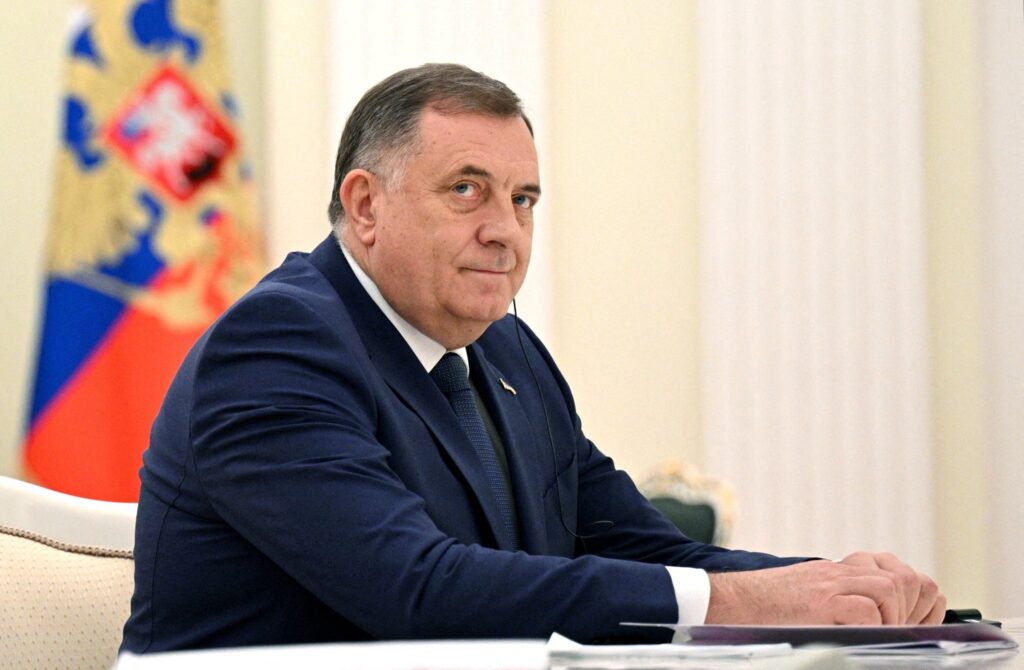
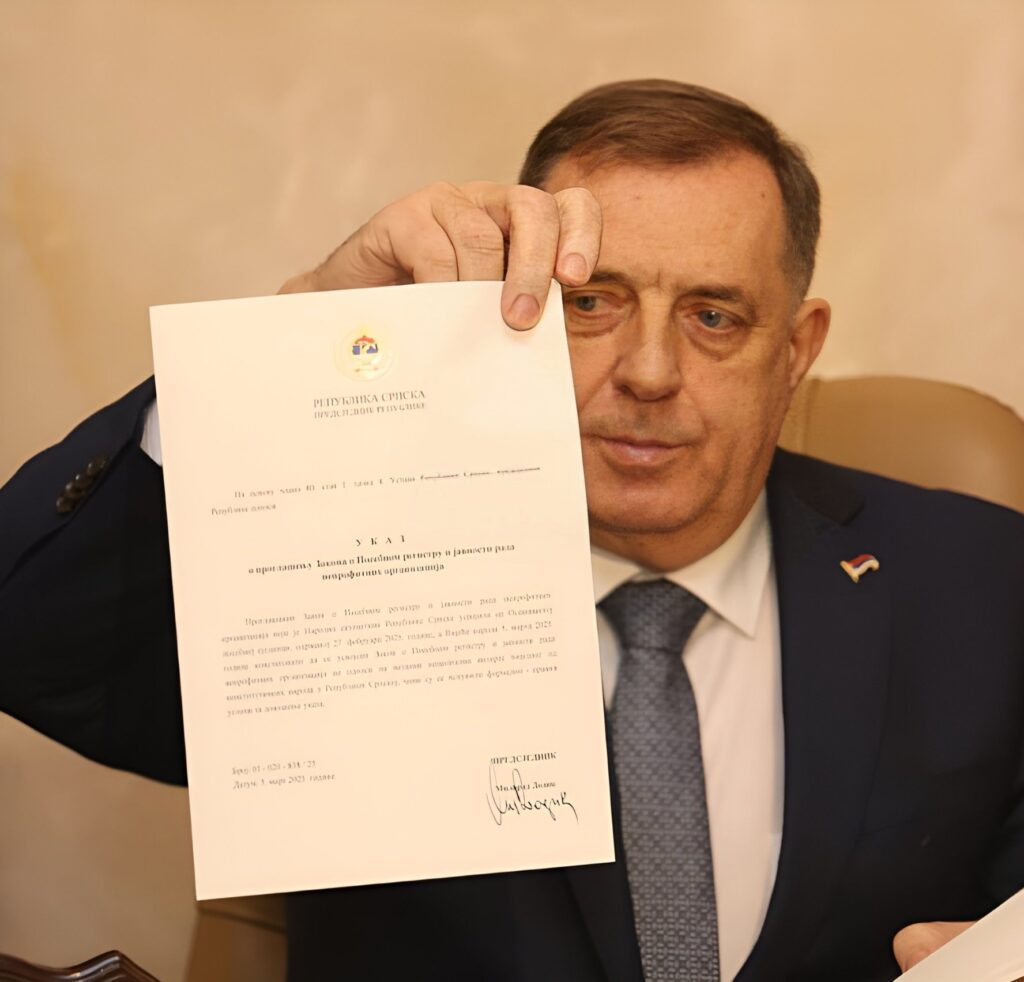
More on this story: Dodik may hide in Serbia; BiH on the verge of collapse
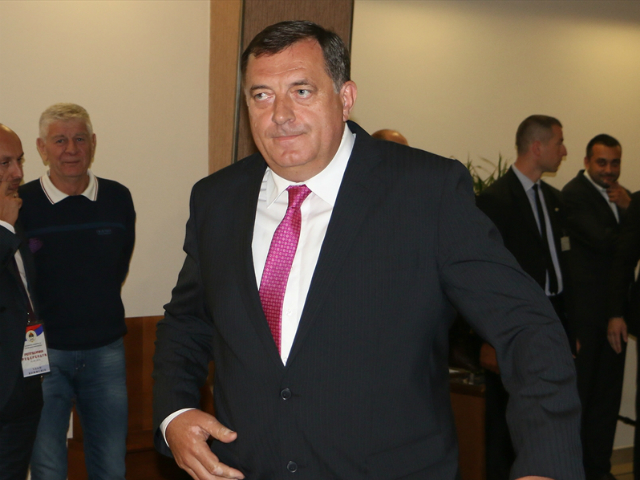
More on this story: Dodik’s madness seeks approval to Putin

More on this story: Bosnia: a vote between nationalism and reformism


